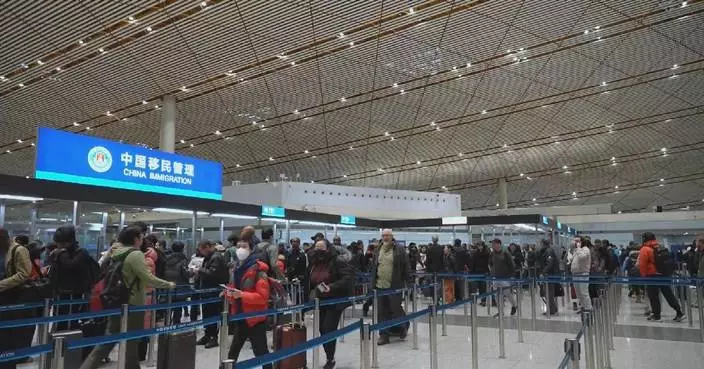The New Development Bank (NDB) officially welcomed Algeria as a new member during its ninth annual meeting in Cape Town, South Africa, as Dilma Rousseff, the bank's president, announced on Saturday.
This move is part of the NDB's strategy to broaden its influence and mobilize resources for infrastructure and sustainable development projects across emerging markets and developing countries.
Algerian President Abdelmadjid Tebboune first revealed the country's application to join the NDB in July 2023, marking a pivotal moment in Algeria’s engagement with international development finance.
The bank's expansion aims to enhance its capacity to support global growth and development initiatives. This expansion follows the NDB's 2021 membership growth, which included Bangladesh, Egypt, the United Arab Emirates, and Uruguay.
Headquartered in Shanghai, the NDB was established by Brazil, Russia, India, China, and South Africa (BRICS) and began operations in July 2015. The bank complements existing multilateral and regional financial institutions by focusing on infrastructure and sustainable development projects.

Algeria joins BRICS’s New Development Bank

Algeria joins BRICS’s New Development Bank

Algeria joins BRICS’s New Development Bank
An exhibition featuring Chang'e-5 lunar samples was open to the public in Beijing on Saturday.
In December 2020, the Chang'e-5 probe brought back the country's first samples collected from the moon, which marked a successful conclusion to China's three-step lunar exploration program of orbiting, landing and returning samples, which began in 2004.
"It is the first time in the country that a long-term science exhibition has been held on the theme of lunar soil sampling and groundbreaking research by Chinese scientists. We have visualized a large amount of scientific research data of the lunar sampling for popular science display, striving to make the exhibition scientific, artistic and highly valuable for science popularization," said Lin Xiao, deputy head of the Beijing Planetarium.
In addition to 0.6 grams of lunar soil brought back by the Chang'e-5, the exhibition also showcases moon rocks collected by Apollo 17 and lunar meteorites from Northwest Africa, offering valuable insights into the moon's formation and evolution.
"Chang'e stone," a new mineral discovered and named from the Chang'e-5 lunar samples is also on display at the exhibition. It is the first new lunar mineral discovered by Chinese scientists and the sixth overall discovered by humanity.
"China is vigorously developing planetary science, which is a comprehensive discipline and manifestation of national strength. The carefully selected landing area of the Chang'e-5, the meticulous research on the lunar samples brought back by the mission, and the research results have contributed to a vastly improved understanding of mineral species over the Apollo era. There are 6,000 kinds of minerals on the Earth and only about 100 on the moon. It's very difficult to discover a new mineral on the moon that we don't have on the Earth, so this is a very important discovery," said Li Qiuli, researcher with the Institute of Geology and Geophysics under the Chinese Academy of Sciences (CAS).

Exhibition of Chang'e-5 lunar sampling opens to public












